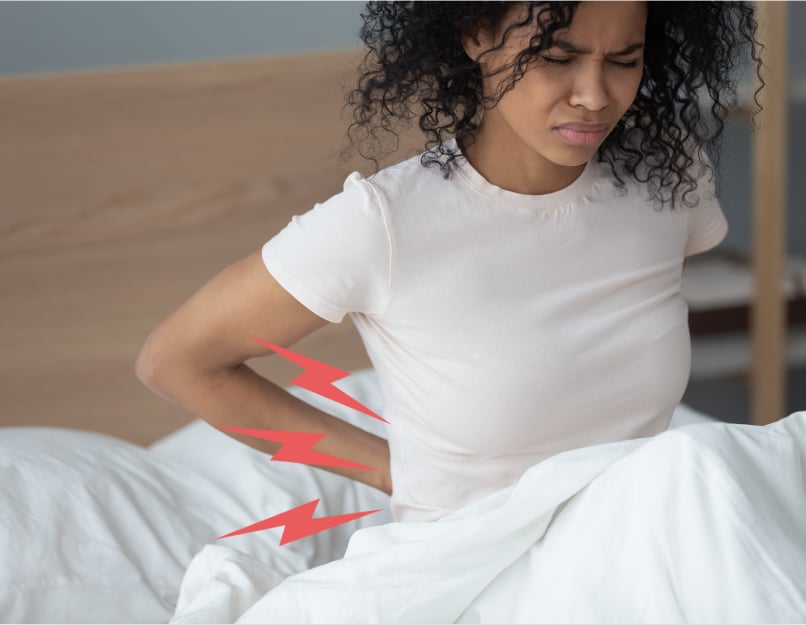Lower back pain is a common complaint among adults, and while many factors can contribute to this discomfort, one often overlooked culprit is your sleeping position. The way you lie down at night can significantly impact your spinal alignment and tension in your back muscles. Understanding the relationship between your sleeping posture and back pain is the first step towards making changes that can lead to a more restful and pain-free night.
The Impact of Different Sleeping Positions
1. Sleeping on Your Back
- Pros: Sleeping on your back is often considered the best position for spinal health as it allows the back to rest comfortably without any twists or bends.
- Cons: However, if the mattress is too soft, the hips can sink, causing the lumbar region to arch and strain.
- Fix: Placing a pillow under your knees can help maintain the natural curve of your lower back and reduce stress on your spine.
2. Sleeping on Your Stomach
- Pros: Rarely considered beneficial, but it can ease snoring in some adults.
- Cons: This position places a significant amount of strain on your back and neck because it forces your spine into an unnatural alignment.
- Fix: If you must sleep on your stomach, placing a flat pillow under your pelvis can help keep your spine more neutral and relieve stress on your back.
3. Sleeping on Your Side
- Pros: For many, especially those with a herniated disc or during pregnancy, side sleeping is recommended.
- Cons: Poor alignment on pillows and mattress can lead to imbalance and strain in the spine and neck.
- Fix: A firm pillow between your knees can prevent your upper leg from pulling your spine out of alignment and reduce stress on your hips and lower back.
How to Choose the Right Mattress and Pillow
Selecting the right mattress and pillow is crucial for supporting your preferred sleeping position. A mattress that provides the right balance of support and comfort can enhance your sleep quality and help you wake up free of back pain. Similarly, choosing a pillow that keeps your head, neck, and spine in alignment can prevent unnecessary strain on your back.
Lifestyle Changes to Complement Better Sleeping Positions
In addition to adjusting your sleeping position, incorporating simple lifestyle changes such as regular exercise, stretching, and maintaining a healthy weight can significantly enhance your spine health. These activities strengthen your core and back muscles, which support your spine, reducing the likelihood of pain due to poor sleeping positions.
Conclusion
Understanding and adjusting your sleeping position can greatly reduce lower back pain and improve your overall health. Experiment with different positions and supportive accessories like pillows to find what works best for your body. Remember, the right setup can transform your sleep into a rejuvenating experience for your back.

